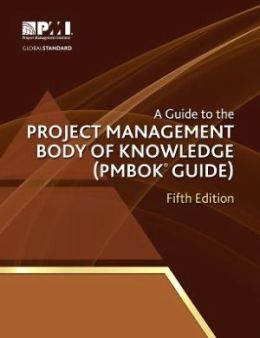Prepare Mentally to Answer on your PMP® Certification Exam
 It is important to be in the right frame of mind and good physical shape before going in for The PMP Exam. Knowing that you have done the best you can in your PMP Exam Prep and getting yourself in the right frame of mind will give you the advantage over others. Here are a few ideas on preparing:
It is important to be in the right frame of mind and good physical shape before going in for The PMP Exam. Knowing that you have done the best you can in your PMP Exam Prep and getting yourself in the right frame of mind will give you the advantage over others. Here are a few ideas on preparing:
Don’t sleep late on the day of the exam: Students often study late into the night before an important exam. You may have been able to get away with all-nighters while you were in school, but now, you are a professional with years of experience. Your plan should allow for regular study, so you would not need to cram the night before. So make sure to get enough sleep the night before. A tired brain does not work efficiently. You know best how much sleep you need to function properly, so plan accordingly.
Read the full question: It’s not a war; you don’t need to hurry as soon as you get in. Have a plan on how best to approach the exam (e.g., determine how many questions you should have answered after x mins, strategy for marking questions, allowing enough time to review). Read all questions carefully and make sure you know what they are asking.
Don’t over-examine: Feedback from many students shows that the first answer chosen is usually the correct one. So don't go back and change your answers again and again. You don't have time for that anyway. You should be confident enough by now to properly analyze the questions to find the best answer. Only when the text from a later question gives you a spark to an earlier question should you consider going back and changing it.
Check out this YouTube video for more tips:
Facts on Using Too Many PMP Exam Prep Books for the PMP Exam
 What usually happens is that students preparing for the PMP exam try to go through too many PMP Exam Prep books or on-line courses thinking that they will be able to absorb everything that they watch and read. That is far from the truth. Too many books will, in fact, confuse you. Usually, one good exam prep book and one course are enough to complement the PMBOK® Guide. Studying the PMBOK® Guide is, of course, a must for any PMP student and no exam prep book is a substitute for it. It would be best if you also read the Agile Practice Guide. And don't forget to study the PMBOK® Guide Glossary. As boring as that may seem, you'll get to know and understand the terminology you need for the exam.
What usually happens is that students preparing for the PMP exam try to go through too many PMP Exam Prep books or on-line courses thinking that they will be able to absorb everything that they watch and read. That is far from the truth. Too many books will, in fact, confuse you. Usually, one good exam prep book and one course are enough to complement the PMBOK® Guide. Studying the PMBOK® Guide is, of course, a must for any PMP student and no exam prep book is a substitute for it. It would be best if you also read the Agile Practice Guide. And don't forget to study the PMBOK® Guide Glossary. As boring as that may seem, you'll get to know and understand the terminology you need for the exam.
There are topics on the exam that are not mentioned in the PMBOK® Guide or the Agile Practice Guide but may appear on the exam. Many popular exam prep books cover these topics. But PMI adds new topics on an ongoing basis, so it's difficult to know what lies ahead on your exam. To be able to overcome this, it is wise to learn from others. Try to read PMP online forums where exam passers are more than willing to share their exam experiences. Read their lessons learned to hear what topics may appear. Spending time on PMP online forums can be an essential part of your preparation, but don't get carried away. Spending a few minutes daily reviewing and commenting on posts is usually sufficient.
So instead of muddling your brains with too many prep books, choose the one you like best to complement your PMBOK studies to ensure a successful exam.
To know the Essential PMP Certification Exam Study Materials, watch this video:
Free PMP Sample Exam to Assess Your PMP® Cert Exam Readiness
 The internet is full of sites and blogs that help you prepare for the PMP Exam. As part of your PMP Exam Prep, you should take advantage of the many free online sample exams. These will help you assess your readiness to take the actual exam.
The internet is full of sites and blogs that help you prepare for the PMP Exam. As part of your PMP Exam Prep, you should take advantage of the many free online sample exams. These will help you assess your readiness to take the actual exam.
Whether you can or cannot find time and money to enroll in a formal, classroom-style PMP Exam Prep course, answering hundreds (even thousands) of PMP Exam sample questions is a must. In the first few weeks of your PMP Exam Studies. It's OK to use just the free ones offered by various sources. These questions prepare you for the rigors of the actual examination for your certification and give you some idea of what to expect. While these do not necessarily reflect actual test questions, they can provide tips and guides to properly respond to any question that may come your way on the "real" exam. The free questions help you to sharpen your knowledge and identify areas where you need to study more.
However, after some weeks, you will not only tire of constantly searching for new free questions. You will also begin to notice that free questions are not always of the same quality. Some are excellent, some are OK, and many are really bad. That is the moment when you have to consider signing up for a PMP Exam Simulator. Yes, subscribing to such a simulator will take some money, but your goal should be to pass the exam in the end. Invest this money into being well prepared for the exam.
So when taking courses for your PMP Exam preparations, make sure that you get at least some free test questions offered by these courses. Together with the free sample questions on the internet and the PMP Exam Simulator, you will be able to prepare yourself well.
Watch this video to know the most important thing to do when preparing for the PMP® exam:
Take a PMP® Exam Prep Class
 Classes that offer extensive and comprehensive coverage or the material required for the PMP exam should go onto your shortlist. The primary benefit of these sessions is that you can interact with the trainer (make sure that he/she is PMP certified) and with other project managers in the classroom studying alongside. This interaction ensures you get a firsthand experience of how to approach situations and the underlying principle that govern them.
Classes that offer extensive and comprehensive coverage or the material required for the PMP exam should go onto your shortlist. The primary benefit of these sessions is that you can interact with the trainer (make sure that he/she is PMP certified) and with other project managers in the classroom studying alongside. This interaction ensures you get a firsthand experience of how to approach situations and the underlying principle that govern them.
The best courses are those that meet once a week over the course of a couple of months and allow you to do self-study in-between and really soak up the material over time.
Through this classroom-type learning, you are given a weekly "checkpoint" to see how much of the lessons are really learned and retained. This checkpoint is important because the PMP Exam tests your ability to apply the theory to real-life project management situations through varying scenarios in the exam questions. Many free tests are available online that you can use to assess if you are ready for the exam. But free tests only go so far, and you should consider subscribing to an online exam simulator that will test your knowledge and ability to pass the exam. These online exam simulators teach you the necessary time-management skills for this 4-hour exam. The detailed reports allow you to review your performance and learn the correct answers to questions you missed.
If you have not decided on which PM Exam course to get, begin with an internet search. Here you get to choose which one is best suited for you and start preparing for your certification exam. Though often expensive, an in-classroom PMP exam prep course is one of the best ways to prepare for the PMP Exam.
Check out this YouTube video for additional tip:
The PMP® Exam Is Largely Based On The Guide
 Remember that even though the Project Management Professional (PMP)® Exam is largely based on the Project Management Institute (PMI)®'s A Guide to the Project Management Body of Knowledge (PMBOK® Guide) you should not only know all of the concepts from here, but you must be able to analyze and answer the situational exam questions with a combination of practical project management knowledge and with what the PMBOK® Guide says. Generally speaking, going against PMI® principles is never a good option. At least not during the PMP® Exam. It is also better to choose the ethical option even though they may seem to be the tougher choice.
Remember that even though the Project Management Professional (PMP)® Exam is largely based on the Project Management Institute (PMI)®'s A Guide to the Project Management Body of Knowledge (PMBOK® Guide) you should not only know all of the concepts from here, but you must be able to analyze and answer the situational exam questions with a combination of practical project management knowledge and with what the PMBOK® Guide says. Generally speaking, going against PMI® principles is never a good option. At least not during the PMP® Exam. It is also better to choose the ethical option even though they may seem to be the tougher choice.
Here is what to expect on the exam: The PMP® Exam consists of 200 Multiple Choice Questions, which must be answered within 4 hours. These questions are randomly generated from a question database which has many hundred questions. Out of 200 questions answered, 25 questions are pre-test questions which will not be used for scoring. These pre-test questions are randomly inserted by the computer into your exam with the idea of evaluating whether these will be used as "real" questions in future exams. This is a normal and valid way to test new questions on actual exam takers and see how they respond. But because you don't know which ones are the pre-test questions it is important to answer all the 200 questions to the best of your ability.
Since 25 out of 200 questions are not used for scoring, effectively, 175 questions are used for scoring on the exam. However, PMI® does not release a "passing score", so we don't know how many questions must be answered correctly in order to pass. After the exam you will be given an examination report on which you can see the areas where you were Proficient, Moderately Proficient and Below Proficient. It also tells you whether you passed or failed.
So the problem is this: If we don't know how many questions you have to answer correctly in order to pass the exam, how can you prepare? My recommendation is that you answer as many sample questions as you possibly can before you take the exam and gain your confidence. Only by taking many mock exams can you raise your understanding. By doing this you will come to a point where you will feel ready and know that you are ready. This is the point where your studies and practice exams will have given you the level of understanding and confidence and you will answer all PMP® Certification Exam questions correctly by applying both your practical experience from being a PM and the theoretical know how from reading the PMBOK® Guide.
For more tips, watch this video - The Short Guide to Becoming a PMP
How to Answer PMP Exam Questions to Pass the PMP® Exam?
 How would you feel if you fail the PMP Exam by just one question? Avoid this by using your exam time wisely. Here is one such strategy:
How would you feel if you fail the PMP Exam by just one question? Avoid this by using your exam time wisely. Here is one such strategy:
Read and re-read all questions.
In the PMP exam, you have 230 minutes to go through 180 questions. The computer-based test has two built-in 10-minute breaks. The first break is given after 60 questions; the second break is given after 120 questions. It is up to the aspirant whether to take the 1st break, the 2nd break, or both breaks, and whether or not to take the entire break(s) or part of it. You will not be allowed to review or change your answers to questions before the break. In other words, you have roughly 76 minutes to go through 60 questions.
If you manage your time well, you should have adequate time to go through all the questions set before you. During this first pass, you will probably not know all answers to all questions. That's OK because that's what the "mark" feature is for. Use it to mark the questions you are unsure about, and then use the remaining time to review all those questions in detail that have stumped you at first.
Another strategy is to concentrate on the more straightforward questions first (those that you feel you'll find the correct answers for quickly) and then come back for the more challenging questions in your second pass. In this way, if you are confronted with a particularly puzzling question, you will simply mark it and move on to the next. Many test-takers report that sometimes, a succeeding question provides a clue or gives you the "nudge" that you need to figure out the difficult ones you have skipped.
Remember also that some questions will appear to have two correct answers. In this case, you have to answer the question by trying to think like the PMBOK® Guide. So if you have studied and understood the concepts from your PMBOK® Guide, there is not much to fear before going into the exam room. And don't be surprised to come across questions that are framed in an unusual way or use terms that are unfamiliar to you. In these cases, the examiners want to know that you understand the processes rather than just memorized them.
Last but not least: Remember to check, check and check again that you have answered all the questions. Make sure not a single one of them is unanswered. There is no penalty for answering a question incorrectly. So go ahead and guess on those questions where you have no idea. Who knows... that might just be the question that lets you see "Pass" instead of "Fail" on the screen.
Here is a short video for you to watch:
The PMP® Exam is a test of project management practices
 Going into the PMP exam, it is always helpful to know that the exam is designed by experts who want to determine that you thoroughly understand the methods, processes, and principles of project management and how you would apply them in a given situation. Therefore, most of the exam questions revolve around a real-life scenario, and they are based on the PMBOK® Guide. That is why the PMP exam is a test of real-life project management practices, tools, techniques, and principles described in the PMBOK® Guide.
Going into the PMP exam, it is always helpful to know that the exam is designed by experts who want to determine that you thoroughly understand the methods, processes, and principles of project management and how you would apply them in a given situation. Therefore, most of the exam questions revolve around a real-life scenario, and they are based on the PMBOK® Guide. That is why the PMP exam is a test of real-life project management practices, tools, techniques, and principles described in the PMBOK® Guide.
However, it does not mean that you are required to memorize the content of the whole PMBOK® Guide.
Instead, to succeed on the exam, you will need to have a lot of hands-on experience in project management and relate it to the theory in the PMBOK® Guide. That's why a minimum of three years/36 months of unique non-overlapping professional projects (five years if you don't have a bachelor's degree) is a prerequisite to taking the exam.
Your real-life experience of managing projects in your industry will make everything much more straightforward. In addition, many situations in the questions will be familiar to you because you have lived through them.
So here is my recommendation: Study the PMBOK® Guide 2-3 times. And please note that I say "study" and not simply "read". Begin applying the principles described by the guide on your day-to-day projects and also relate them to your previous projects. That way, you will see how these principles work. Doing it this way will make you a better project manager and help you pass the exam instead of just mindless memorization.
Check out this YouTube video for additional tips:
 It is important to be in the right frame of mind and good physical shape before going in for The PMP Exam. Knowing that you have done the best you can in your PMP Exam Prep and getting yourself in the right frame of mind will give you the advantage over others. Here are a few ideas on preparing:
It is important to be in the right frame of mind and good physical shape before going in for The PMP Exam. Knowing that you have done the best you can in your PMP Exam Prep and getting yourself in the right frame of mind will give you the advantage over others. Here are a few ideas on preparing: What usually happens is that students preparing for the PMP exam try to go through too many PMP Exam Prep books or on-line courses thinking that they will be able to absorb everything that they watch and read. That is far from the truth. Too many books will, in fact, confuse you. Usually, one good exam prep book and one course are enough to complement the PMBOK® Guide. Studying the PMBOK® Guide is, of course, a must for any PMP student and no exam prep book is a substitute for it. It would be best if you also read the Agile Practice Guide. And don't forget to study the PMBOK® Guide Glossary. As boring as that may seem, you'll get to know and understand the terminology you need for the exam.
What usually happens is that students preparing for the PMP exam try to go through too many PMP Exam Prep books or on-line courses thinking that they will be able to absorb everything that they watch and read. That is far from the truth. Too many books will, in fact, confuse you. Usually, one good exam prep book and one course are enough to complement the PMBOK® Guide. Studying the PMBOK® Guide is, of course, a must for any PMP student and no exam prep book is a substitute for it. It would be best if you also read the Agile Practice Guide. And don't forget to study the PMBOK® Guide Glossary. As boring as that may seem, you'll get to know and understand the terminology you need for the exam. The internet is full of sites and blogs that help you prepare for the PMP Exam. As part of your PMP Exam Prep, you should take advantage of the many free online sample exams. These will help you assess your readiness to take the actual exam.
The internet is full of sites and blogs that help you prepare for the PMP Exam. As part of your PMP Exam Prep, you should take advantage of the many free online sample exams. These will help you assess your readiness to take the actual exam. Classes that offer extensive and comprehensive coverage or the material required for the PMP exam should go onto your shortlist. The primary benefit of these sessions is that you can interact with the trainer (make sure that he/she is PMP certified) and with other project managers in the classroom studying alongside. This interaction ensures you get a firsthand experience of how to approach situations and the underlying principle that govern them.
Classes that offer extensive and comprehensive coverage or the material required for the PMP exam should go onto your shortlist. The primary benefit of these sessions is that you can interact with the trainer (make sure that he/she is PMP certified) and with other project managers in the classroom studying alongside. This interaction ensures you get a firsthand experience of how to approach situations and the underlying principle that govern them. Remember that even though the Project Management Professional (PMP)® Exam is largely based on the Project Management Institute (PMI)®'s A Guide to the Project Management Body of Knowledge (PMBOK® Guide) you should not only know all of the concepts from here, but you must be able to analyze and answer the situational exam questions with a combination of practical project management knowledge and with what the PMBOK
Remember that even though the Project Management Professional (PMP)® Exam is largely based on the Project Management Institute (PMI)®'s A Guide to the Project Management Body of Knowledge (PMBOK® Guide) you should not only know all of the concepts from here, but you must be able to analyze and answer the situational exam questions with a combination of practical project management knowledge and with what the PMBOK How would you feel if you fail the PMP Exam by just one question? Avoid this by using your exam time wisely. Here is one such strategy:
How would you feel if you fail the PMP Exam by just one question? Avoid this by using your exam time wisely. Here is one such strategy: Going into the PMP exam, it is always helpful to know that the exam is designed by experts who want to determine that you thoroughly understand the methods, processes, and principles of project management and how you would apply them in a given situation. Therefore, most of the exam questions revolve around a real-life scenario, and they are based on the PMBOK® Guide. That is why the PMP exam is a test of real-life project management practices, tools, techniques, and principles described in the PMBOK® Guide.
Going into the PMP exam, it is always helpful to know that the exam is designed by experts who want to determine that you thoroughly understand the methods, processes, and principles of project management and how you would apply them in a given situation. Therefore, most of the exam questions revolve around a real-life scenario, and they are based on the PMBOK® Guide. That is why the PMP exam is a test of real-life project management practices, tools, techniques, and principles described in the PMBOK® Guide.